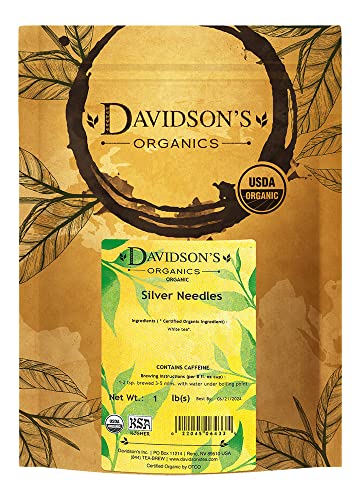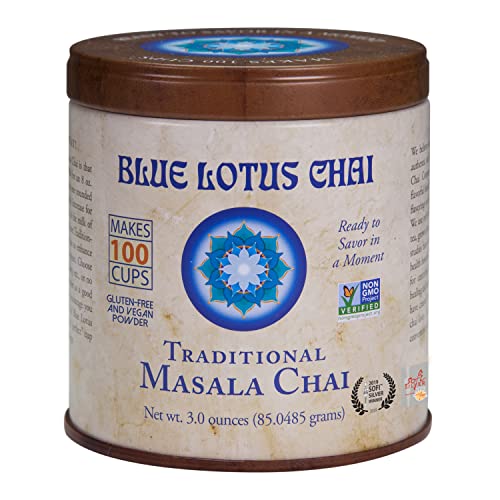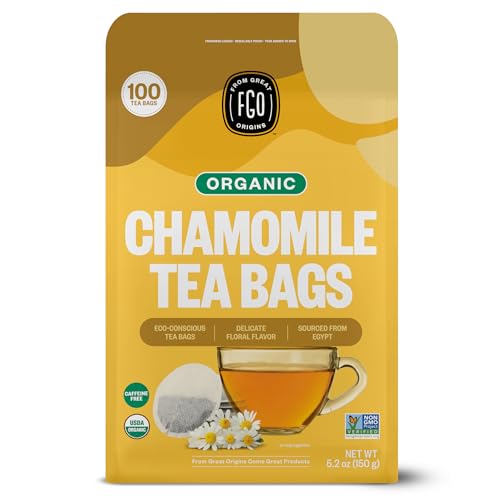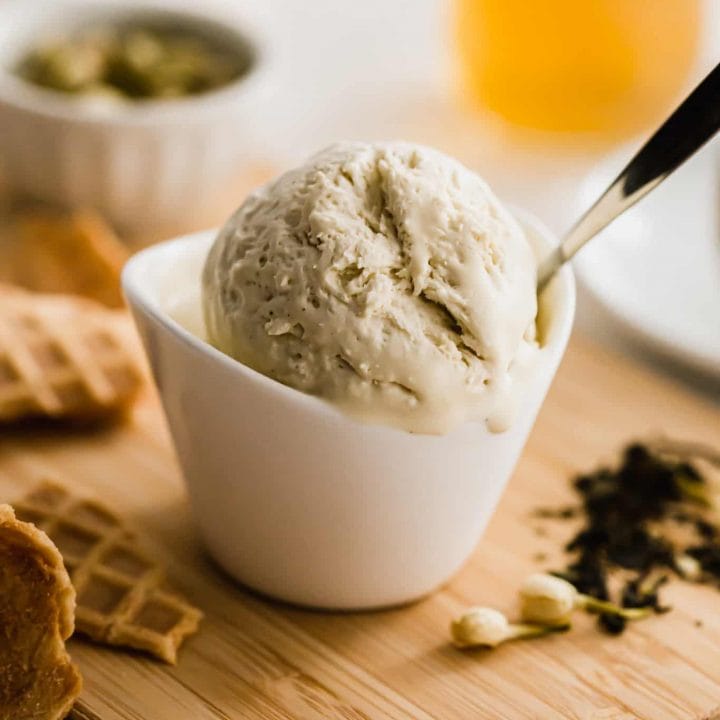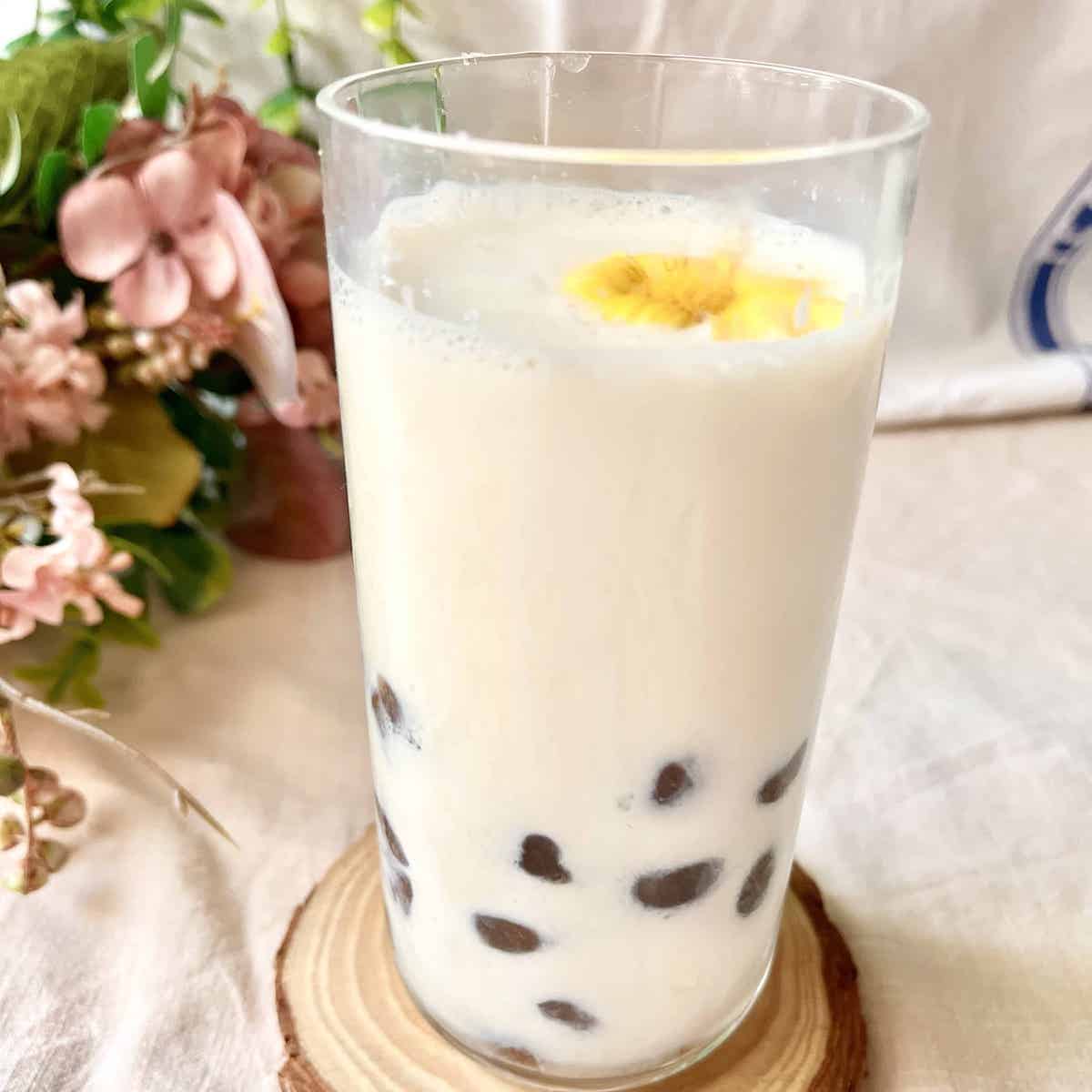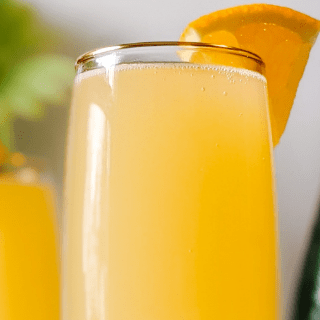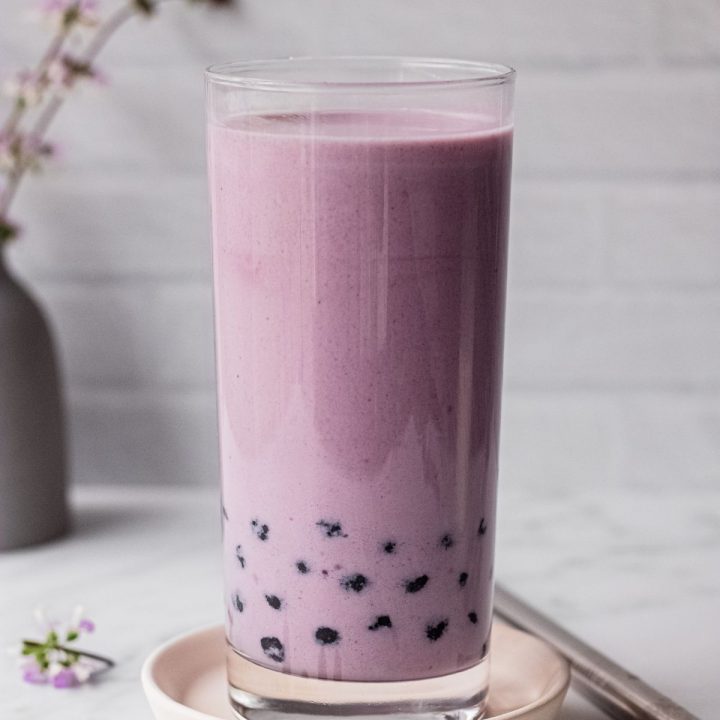This post may contain affiliate links which means I will get a commission if you make a purchase at no additional cost to you. As an Amazon Associate I earn from qualifying purchases. Please read my disclosure for details.
If you’re looking for a tea that is unique and delicious, you can’t go wrong with jasmine tea. But what does jasmine tea taste like?
Ever been to a Chinese friend’s house and been offered cups of jasmine tea?
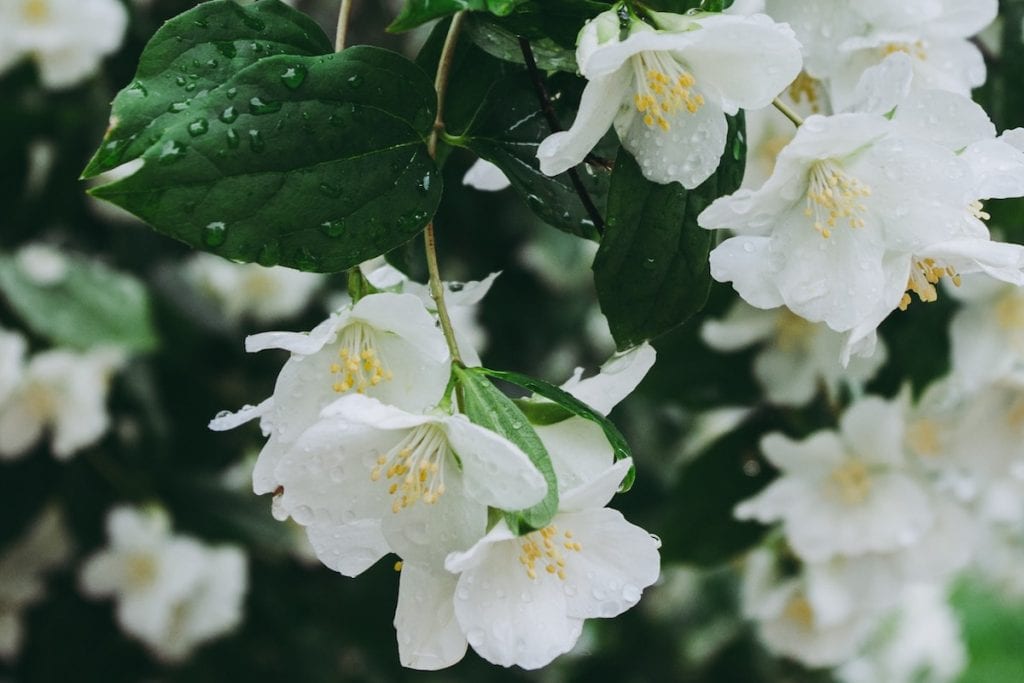
WANT TO SAVE THIS RECIPE?
Well, it isn’t that surprising since the taste of jasmine tea has been the most popular in China since the 5th century.
As the popularity of jasmine tea has grown since the 19th century, it has become more readily available in countries in the West, allowing more people to enjoy its sweet taste and strong scent.
What Is Jasmine Tea?
Jasmine is a flowery flavored tea made from either green or black teas. It usually contains green or black teas’ bases, but white ones can be used instead.
Jasmine Blossom is typically put together with the tea leaves in storage or blended with stored tea, bringing about a delicate flavor.
Jasmines are often made from green teas, so they share many of the same health benefits as green teas.
More expensive jasmine tea will consist of fresh jasmine flower buds, while cheaper varieties contain some jasmine oil.
Jasmine tea is a great source of cellular antioxidants and has strong anti-inflammatory and blood-lipid-lowering effects.
So whether you’re looking for a sweet drink with a floral aroma or immune health, you can never go wrong with a boost of jasmine.
Why You’ll Love Jasmine Tea
- Subtle Taste – Jasmine tea typically tastes delicate, gentle, and sweet. Its brewed and scented techniques play a big role in the final taste.
- Heart Health – Jasmine tea has a high level of polyphenols, which can help reduce the risk of heart disease, according to animal studies.
- Awesome Antioxidants – Jasmine tea contains antioxidants, which can help protect your body’s cells against free radical damage and greatly reduce cancer risk.
What Does Jasmine Tea Taste Like?
Jasmine tea has a fragrant, floral, and tropical flavor. It contains a very calming and restorative element as well.
Jasmine pearls tea especially has a very rich flavor combined with a spring-like freshness.
I’m not sure what I expected when I tasted jasmine tea. I’ll be honest that part of me wanted it to taste sweet.

While it did have some sweet notes, the sweetness wasn’t has vibrant as I’d imagined it to be.
After a few months, I finally decided that I preferred plain old green tea or earl gray tea, another tea with floral/fruity notes.
Is Jasmine Tea Sweet or Bitter?
From my experience, jasmine tea usually has a sweet aroma. However, the taste depends on the water temperature. Using boiling water can cause the flavor to turn bitter.
Since Jasmine tea is often made with green tea, it shouldn’t be brewed for longer than 3 minutes. You can expect a slightly bitter taste if it is brewed longer than that.
Does Jasmine Tea Have Caffeine?
Pure jasmine tea has no caffeine, but since it is blended with other tea types, it usually contains a bit of caffeine content.
The typical caffeine intake for Camellia Sinensis teas is 20 to 60mg per cup. Of course, this will depend on the tea type and the amount of loose tea leaves you use.
As a side note, I’ve drink jasmine tea at night and had absolutely no problem going to bed.
Is Jasmine Tea Healthy?
Jasmine tea rarely has side effects, but it contains caffeine, which could cause nervousness, gastrointestinal upset, and jitteriness for some people.
I haven’t had any of these issues, knock on wood!

Also, jasmine tea has catechins, which can reduce your body’s ability to absorb iron from foods. In worst cases, catechins can trigger iron deficiency anemia.
Even though there aren’t any major health risks if you drink jasmine teas regularly, you should avoid drinking jasmine tea if you’re at risk for iron deficiency (source).
Is Jasmine Tea Healthier Than or Better Than Green Tea?
Both jasmine and green tea contain antioxidants that can boost your immune system, lower the risk of cancer and promote healthy skin and hair.
Moreso, jasmine is an excellent choice for relaxing and soothing your nerves.
What Are The Benefits Of Jasmine Tea?
Jasmine tea contains so many health benefits that you could create a huge list for them. But here are a couple of benefits for you to bear in mind.
- It is good for your heart. Because it contains polyphenols, it can help protect you against heart disease and heart attacks.
- Studies show that, on average, people who drink 3 cups (710 ml) or more of green or black tea daily have a 21% lower risk of heart disease (Source).
- It is amazing for oral health. Jasmine tea has catechins – a group of polyphenols that may help protect against tooth decay or cavities by killing plaque-forming bacteria.
- It promotes brain function. Because green tea contains 30 to 50 mg of caffeine, jasmine green tea can also be a source of it, which stimulates brain activity and helps in the release of other mood-enhancing neurotransmitters, such as dopamine and serotonin.
- It lowers the risk of type 2 diabetes. It contains a compound called EGCG (Epigallocatechin gallate), which may help your body use insulin more effectively, reducing blood sugar levels.
- It contains cancer-fighting properties. The polyphenols found in green tea can reduce tumor size, cause cancer cell death, and prevent the growth and spread of cancer cells.
- It assists with weight loss. This is because jasmine tea has fat-burning properties that help speed up your metabolism.
Where To Find The Best Jasmine Tea
- Amazon- Natural Jasmine Flower Tea
- Walmart – Taylors of Harrogate Green Tea with Jasmine
- The Tea Spot – Jasmine Petals, Organic
- Premium jasmine flowers, pure jasmine flower buds, no irradiation, no fillers.
- Jasmine flower as a caffeine-free tea, can be mixed with black or green tea.
- Jasmine flower is packed with antioxidants, good for your sleep and relax stress.
Does Jasmine Tea Go Bad?
Just like most teas, jasmine tea does not have an expiry date. The reason for this is its natural properties. However, jasmine tea starts to lose its aroma, flavor, and color over time.
The typical shelf life for jasmine tea is 6-12 months but can reach 24 months if it is stored properly.
What Types of Jasmine Tea Are There?
- Jasmine Green Tea – Twinings Jasmine Green Tea Bags
- Jasmine Oolong – TerraVita Jasmine Oolong Tea
- Jasmine White – Asian Jasmine White Tea
- Asian Jasmine White Tea: The Ming dynasty was a prolific period for the jasmine blossom, represented in art, literature and tea. Fragrant floral flavors marry with 100% White Tea for a heavenly aroma and an exalting cup.
- 100% China White Tea: Authentic 100% White Tea only grows in the majestic mountains of China’s Fujian Province. With small yields and high demands, it remains one of the world’s most rare teas.
- Steeping Instructions: Simply heat fresh, filtered water to just short of boiling. Then pour 6 oz water over one tea bag and steep for 30-60 seconds. Remove tea bag and enjoy, Sip by Sip.
5 Best Substitutes Alternatives To Jasmine Tea
Silver Needle Tea
Silver needle tea has a light, herbal taste. Like jasmine tea, it contains catechins and is known for reducing heartburn and helping prevent cell damage.
Earl Gray Tea
Earl Gray Tea is combined with other flowers or flavorings. It is also known to improve immunity and boost metabolism, which makes it a wonderful substitute for jasmine tea.
Masala Chai Tea
Masala Chai Tea typically contains cardamom, ginger, pepper, and cloves, giving it a sweet and subtle taste. It is linked to a healthier immune system and contains antioxidants like jasmine tea.
Chamomile Tea
Chamomile tea has a subtle flavor and is known to reduce anxiety. Like jasmine tea, it is known for treating diabetes and lowering blood sugar.
Rose Hip Tea
Rosehip tea has a delicate, floral flavor that’s a bit sweet with a unique tart aftertaste. Like jasmine tea, rosehip tea has a lot of health benefits, such as improved immunity, heart health, weight loss, and skin aging.
How To Store Jasmine Tea
Once you’ve prepared and brewed jasmine tea, you can cover it and keep it in the refrigerator for up to 4 days.
Make sure to store loose jasmine tea leaves in an airtight container that is kept away from light, heat, humidity, and odor.
Glass jars are not recommended to store jasmine tea leaves as they cause sunlight to enter and gradually damage the tea leaves. This changes the flavor of the tea. Instead, you can keep them in ceramic or tin containers.
If you are storing jasmine tea in pouches, try to ensure that there is the least amount of air entering the bag. This will increase the life of your tea and keep it flavorful for a much longer time.
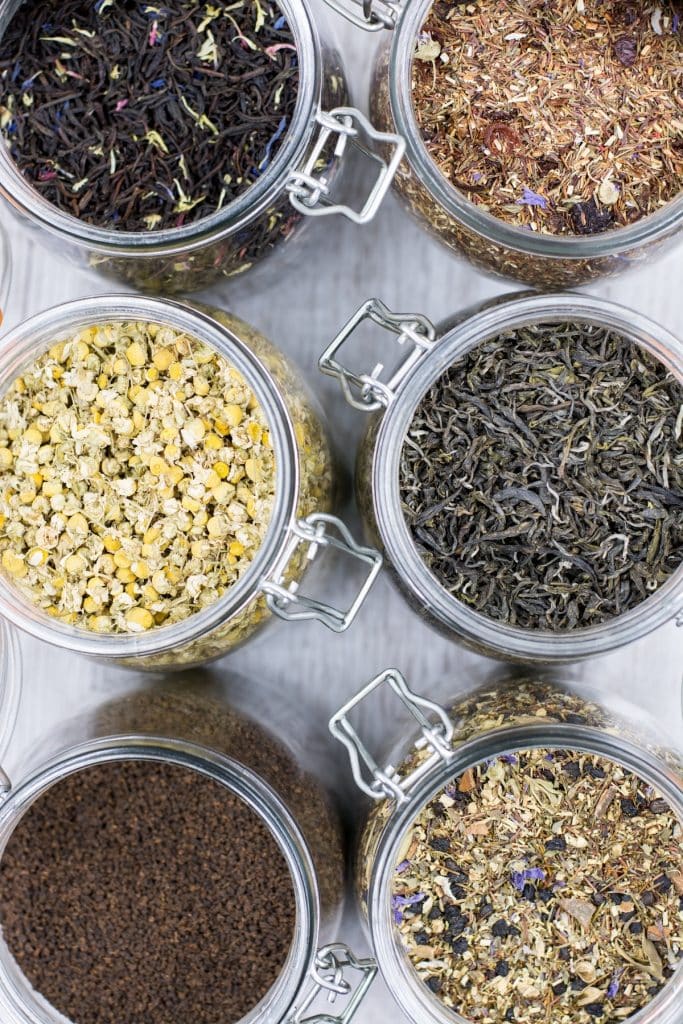
FAQs About Jasmine Tea
Can pregnant lady drink jasmine tea?
Pregnant women should limit their intake of caffeine, so they have to reduce their jasmine tea intake as well, as it may increase the risk of a miscarriage.
Is it OK to drink jasmine tea before bed?
Yes. Jasmine tea is a natural relaxant for your mind and body. Jasmine is known to have a calming effect on the nervous and muscle system, which can improve restlessness and insomnia.
Can I drink jasmine tea every day?
Yes. Like other green teas, jasmine tea is safe for most people to drink in amounts of up to 8 cups a day. However, there are still potential risks that should be considered before doing so.
Recipes With Jasmine Tea
Jasmine Tea is delicious on its own, but did you know there are many ways to enjoy it? Here are a few favorite recipes!
Taro Milk Tea (Taro Bubble Tea)
Sparkling Strawberry Lychee Jasmine Tea
No-Churn Jasmine Tea Ice Cream
This No-Churn Jasmine Tea Ice Cream has a pleasant floral fragrance that permeates throughout. It is creamy, light, and refreshing and comes together with only a few simple ingredients. No ice cream maker is required!
Jasmine Milk Tea Boba
Jasmine Milk Tea Boba is a quick and easy drink to DIY. You only need 4 easy-to-get ingredients and 20 minutes to make this delicious floral drink. It's much cheaper and faster than going to the boba shops! https://www.greedygirlgourmet.com/jasmine-milk-tea-boba/
Jasmine Raspberry Tea
The floral flavor of jasmine tea is blended with sweet raspberries to create this delicious drink. Cozy up on the couch with a cup of this wonderful tea.
Jasmine Green Tea Mimosa
This 3 ingredient tea mimosa is bright, sparkling, and smooth tasting with a bit of zest and floral notes. The flavors are well-balanced and not too sweet. Let this be the star of your next brunch!
Easy Taro Milk Tea (Taro Bubble Tea)
Taro milk tea with boba is a refreshing & delicious drink made with taro powder, milk, and tapioca pearls. Taro bubble tea is so easy to make, and this version is much healthier!
Conclusion
So, what does jasmine tea taste like?
If you’re looking for a tea that’s both fragrant and delicious, jasmine tea is a great option.
The taste of jasmine tea can vary depending on the type of tea leaves used and how long they’re brewed, but generally, it has a light, floral flavor with hints of sweetness.
However, the taste can turn bitter if you use too hot water.
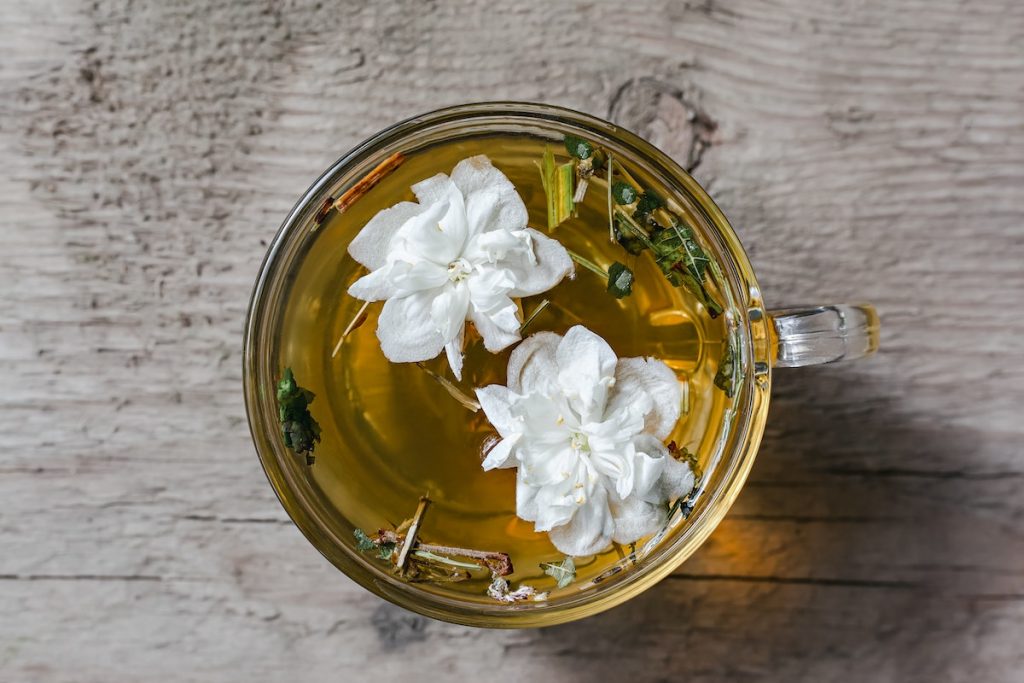
Jasmine flowers are often used to create a delicate flavor profile for teas. However, when combined with green tea leaves, they allow for a pleasant yet mellow taste.
Jasmine tea is also low in calories, making it a healthy choice for those watching their weight.
You can enjoy a cup of jasmine tea on its own or use it as a base for other flavored teas like jasmine milk tea and bubble tea.
Your turn! What does jasmine tea taste like to you? If you haven’t tried jasmine tea before, what did you think it tasted like before reading this article?
For more frequently asked questions, visit our index of food-related questions and answers. Here are a few suggestions for you:



